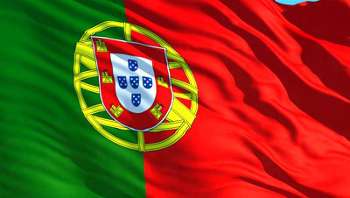Portuguese Government Approve Online Gambling Bill
 By the time 2014 draws to a close, residents of Portugal should be free to play online poker, online casino games and partake in online sports betting after the Portuguese Council of Ministers approved a draft bill that would see Portugal legalize and regulate online gambling.
By the time 2014 draws to a close, residents of Portugal should be free to play online poker, online casino games and partake in online sports betting after the Portuguese Council of Ministers approved a draft bill that would see Portugal legalize and regulate online gambling.
The Portuguese government has been under pressure to look at its current gambling laws for almost a year since a meeting with its bailout creditors the International Monetary Fund (IMF), European Central Bank (ECB) and the European Union (EU). A 2011 study revealed the Portuguese government could reap revenues of €250 million per year if it altered its stance on online gambling. These changes were meant to be put into force shortly after the study, but progress stalled and appeared to have ground to a halt, until now.
On July 10, the new online gambling laws were debated during a parliamentary session and significant progress made because six days later the Portuguese government approved the bill that paves the way for legalized and regulated online gambling.
Portugal currently has a state-controlled monopoly on online gambling, namely Santa Casa da Misericordia (SCML) but this new bill proposes an open market with a system of licenses not too dissimilar to those systems currently adopted by Italy, France and Spain.
Under the new regulations, the new market will be controlled by the Inspecção Geral de Jogos, the Gaming Inspectorate that currently under the umbrella of the Portuguese tourism industry. Operators such as PokerStars, Full Tilt Poker, partypoker have to apply for a licences in order to offer their services to residents of Portugal.
In order to be successful in their application, operators have to pass stringent tests and fulfil a long list of administrative, technical and legal requirements including a minimum capital share of €250,000 and having to operate from a “dot PT” domain.
Once a license is obtained, the operators are liable to pay tax of between 15% and 37.5%. Games of chance, which on the surface appear to include online poker, would attract a taxation rate of between 15% and 30% of gross revenue, while sports betting operations face the prospect of paying 37.5% tax on their profits.
Under the current state-owned monopoly, the SCML keeps 27.8% of revenues generated from its own gambling site and the various lotteries that are in place.
Portugal’s Secretary of State, Mesquina Nunes, said the new scheme was crucial “to make sure that the companies will pay taxes in Portugal and also to give the [Portuguese] government a good control over their operations.”
Nunes would not comment on the amount of revenue the new open market would generate stating that “it will depend on the number of companies that will obtain a license.”
With Portugal having received a €78 billion bailout from the IMF, EU and ECB and facing the prospect of having almost 18% of is residents out of work, the new gambling bill is more of a necessity to increase revenue than a liberalization of its gambling laws.
It appears that Portugal’s gambling think tank did not consider how the high rate of taxation may deter companies from even trying to obtain a license like in neighbouring Spain.
A recent Deloitte-authored report revealed that while operators in Spain pulled in some €234 million in gross revenues, they made a combined net loss in excess of €72 million, partly due to the high tax burden levied by the Spanish authorities. In today’s market, there are few companies that would be willing to soak up a huge loss in order to legally operate within Portugal.



















COMMENTS